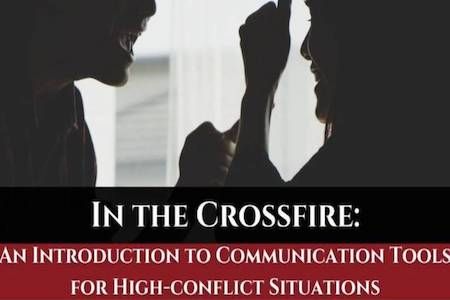Courses and Events
Upcoming On Demand Courses

Online/On-Demand Webinar
The Ethical Compass -Ethics of Leadership
1 hour of Continuing Education
This workshop provides participants with a deep understanding of the ethical principles that underpin effective and integrity-driven leadership. In today's complex and fast-paced professional environments, leaders are increasingly required to make decisions that not only affect their organizations but also have far-reaching implications for their teams, communities, and the broader society.
Learning Objectives
- Learn and apply ethical decision-making frameworks that enable them to navigate complex leadership challenges with integrity, ensuring that their choices align with core ethical principles and professional standards.
- Develop strategies to foster a culture of ethical behavior within their teams and organizations, promoting transparency, accountability, and trust in their leadership.
- Explore the role of personal and professional integrity in leadership, understanding how to consistently uphold ethical values in their daily practices, thereby enhancing their credibility and influence as leaders.

Online/On-Demand Webinar
Introduction to Reunification Therapy
2 hour Continuing Education
Discover the essential principles of Reunification Therapy and why it plays a critical role in restoring fractured parent-child bonds. Learn how reunification therapists uniquely navigate complex family systems where traditional therapy falls short.
Introduction to Reunification Therapy introduces participants to the foundational concepts of Reunification Therapy (RT), including its purpose, core goals, and the unique role RT plays in addressing disrupted parent-child relationships. It also distinguishes the reunification therapist's responsibilities from those of a traditional therapist, setting the stage for specialized training in high-conflict family dynamics.
Learning Objectives
- Define Reunification Therapy and articulate its primary goals within the context of family dynamics.
- Identify the circumstances that commonly lead to the need for reunification interventions.
- Differentiate the role and responsibilities of a reunification therapist from those of a traditional mental health therapist.

Online/On-Demand Webinar
Balancing Boundaries: Ethical Standards in Reunification Work
1 hour Continuing Education
Reunification therapy takes place at the intersection of law, family conflict, and clinical ethics, requiring practitioners to balance legal directives with therapeutic integrity. This workshop provides a focused overview of relevant family law, court procedures, and professional ethical standards, helping therapists confidently manage their responsibilities in high-conflict cases.
Learning Objectives
By the end of this workshop, participants will be able to:
- Identify key aspects of family law and court procedures that directly impact reunification therapy.
- Apply ethical guidelines to challenging scenarios in reunification practice.
- Evaluate the therapist’s role in balancing legal requirements, parental rights, and the child’s best interests.

Online/On-Demand Webinar
Uncovering the Story: Family Dynamics Assessment for Reunification
1 Hour Continuing Education
This one-hour training provides mental health therapists with practical tools to assess family dynamics in the context of reunification therapy. Participants will learn how to evaluate family history, identify relational patterns, and recognize the underlying factors contributing to separation, ensuring a thorough and ethical foundation for treatment planning.
Gain the skills to effectively assess family dynamics in reunification cases. This workshop equips therapists to identify patterns, history, and separation factors that shape the therapeutic process.
Learning Objectives
By the end of this training, participants will be able to:
- Describe methods for assessing family history and relational patterns in reunification therapy.
- Identify contributing factors that commonly lead to family separation.
- Apply assessment findings to inform ethical and effective treatment planning in reunification cases.

Online/On-Demand Webinar
Introduction to Communication Tools for High-Conflict Situations
1 Hour Continuing Education
This dynamic, skills-focused introductory workshop introduces licensed mental health professionals and allied professionals to the foundations of high-conflict communication, whether in family court, clinical settings, or interpersonal relationships. This training explores broader conflict patterns including high conflict divorce, escalated workplace dynamics, co-parenting disputes, therapeutic ruptures, and court-involved cases.
Participants will learn to identify high-conflict behavior patterns, understand the psychological roots of conflict escalation, and learn an introductory overview of intervention strategies that de-escalate communication while maintaining professional neutrality and ethical clarity. The workshop introduces how to navigate conflict as a clinician, consultant, or evaluator, and offers tools for documentation and recommendations when collaboration with courts or legal systems is required.
Whether you are supporting families in transition, managing tense clinical alliances, or working within legal frameworks, this introductory training equips professionals with clear, trauma-informed tools to maintain stability in the storm of conflict.
Learning Objectives:
- Define high-conflict communication and differentiate it from typical interpersonal conflict using clinical and legal examples.
- Identify verbal and non-verbal patterns of high-conflict communication, including projection, blame-shifting, gaslighting, and triangulation, through case examples and role-play scenarios.
- Explore the psychological underpinnings of high-conflict behavior (e.g., personality disorders, trauma responses), and understand their impact on parenting, co-parenting, and child well-being.

Online/On-Demand Webinar
Coercive Control in Reunification Therapy
1 Hour Continuing Education
This workshop introduces mental health and allied professionals to the dynamics of coercive control and its impact on reunification therapy. Participants will learn how coercive tactics influence parent-child relationships, compromise safety, and shape ethical and clinical decision-making in high-conflict cases.
Understand the hidden dynamics of coercive control in reunification therapy. This workshop equips professionals with tools to recognize patterns, protect children, and strengthen clinical practice.
Learning Objectives
By the end of this workshop, participants will be able to:
-
Define coercive control and identify its manifestations in reunification therapy contexts.
-
Assess the impact of coercive tactics on children, parents, and therapeutic outcomes.
-
Apply ethical and clinical strategies to address coercive control while prioritizing safety and balanced intervention.

Online/On-Demand Webinar
Guiding Parents Forward: Education & Coaching in Reunification Therapy
1 Hour Continuing Education
This one-hour webinar introduces parents to the foundations of education and coaching within reunification therapy. It provides practical strategies to improve communication, set healthy boundaries, and support children through the reunification process. Understand the hidden dynamics of coercive control in reunification therapy. This workshop equips professionals with tools to recognize patterns, protect children, and strengthen clinical practice.
Learning Objectives
By the end of this webinar, participants will be able to:
-
Describe the purpose of parent education and coaching in reunification therapy.
-
Identify practical strategies for supporting children during reunification.
-
Apply communication and boundary-setting techniques that encourage cooperation and reduce conflict.

Online/On-Demand Webinar
In Their Best Interest: Child-Centered Parenting in Reunification Therapy
1 Hour Continuing Education
Learn how to put children at the heart of reunification therapy. This workshop provides practical tools to guide parents in fostering safe, supportive, and resilient family relationships.
This workshop highlights child-centered parenting practices within reunification therapy, emphasizing the importance of prioritizing children’s developmental, emotional, and relational needs in high-conflict family dynamics. Mental health and allied professionals will gain strategies to guide parents toward approaches that reduce conflict, strengthen parent-child connections, and promote child well-being during reunification.
Learning Objectives
By the end of this webinar, participants will be able to:
-
Define child-centered parenting and distinguish it from parent-focused or conflict-driven approaches in reunification therapy.
-
Identify strategies to promote children’s developmental, emotional, and relational needs during reunification.
-
Apply practical tools to coach parents toward behaviors and communication styles that reduce conflict and support child well-being.
Certifications for more information

Certified Personal Injury Assessor Certification Training
The Certified Personal Injury Assessor (CPIA) training is structured across 12 detailed modules delivered over a two-day, 12-hour intensive course. Each module focuses on critical aspects of personal injury assessment, ranging from foundational concepts to advanced applications. Through a combination of theoretical instruction, practical applications, case studies & role-play activities, participants will gain a robust understanding of the intersection between mental health and law, including how to apply this knowledge in real-world scenarios. This training meets qualifications for testing for CPIA.

Parent Educator Certificate Training
This training program is an in-depth course tailored for professionals dedicated to supporting and empowering parents. It provides participants with critical knowledge and practical skills grounded in evidence-based parent education. Key focus areas include child development, advanced communication techniques, behavior management, and strategies for guiding parents through challenges. The curriculum ensures that participants are well-prepared to implement effective interventions that positively impact family dynamics. The learning objectives emphasize comprehensive understanding of parent education, mastery of parent-child communication techniques, and the development of actionable strategies for equipping parents to manage their child's behavior.

Certified Grief Therapist
Grief counseling is vital for helping individuals cope with the profound emotional, cognitive, and social impacts of loss, especially when grief becomes complicated or traumatic. Unresolved grief can significantly impair a person’s ability to function, making it crucial for mental health professionals to provide effective support. This workshop equips therapists with essential tools and knowledge to navigate these challenges, focusing on the distinction between typical grief and traumatic grief, and identifying when specific interventions are necessary. Participants will learn therapeutic techniques such as Cognitive Behavioral Therapy (CBT), Dialectical Behavior Therapy (DBT), and Trauma-Focused CBT (TF-CBT), along with strategies for creating culturally sensitive treatment plans. Additionally, the course will address ethical challenges unique to grief and trauma therapy, ensuring professionals can competently support clients on their path to healing.

Certified Anger Management Specialist (12 hours)/ Therapist (18 hours)
Effective anger management is crucial for fostering healthier relationships and preventing disruptive behaviors. This Anger Management Certification Program is designed specifically for mental health professionals. Spanning 12 to 18 hours, this course utilizes research-based techniques to identify, assess, and manage anger through interventions like cognitive-behavioral therapy (CBT) and relaxation strategies. Participants will explore the nature of anger, its systemic causes, and its impact on identity and relationships while learning to enhance insight and empathy. Upon completion, participants receive an Accredited Certificate of Completion and the title of “Certified Anger Management Specialist” or “Certified Anger Management Therapist.” This certification not only signifies professional growth but also equips participants to facilitate meaningful change in individuals facing anger-related challenges, making them valuable assets in mental health settings. Join us to enhance your ability to address these critical issues and make a lasting impact.

Certified Reunification Therapist
The Certified Family Reunification Specialist (CFRS) Program is a certification tailored for behavioral health professionals working with families undergoing reunification after custody disputes or separations. The program provides comprehensive training in reunification therapy, focusing on legal, ethical, and therapeutic aspects to ensure alignment with court standards. It covers the assessment of family dynamics, safety concerns, and models for both collaborative and court-ordered therapy. Additionally, the curriculum emphasizes parent education, child-centered techniques, and cultural competence to support diverse families.

Certified Custody EvaluatorThe Custody Evaluator Certification Program is a comprehensive 12-hour certification course designed for master's level professionals in fields such as psychology, counseling, social work, and related disciplines. This program is specifically crafted to equip mental health professionals with the necessary skills, knowledge, and tools to conduct thorough and ethical custody evaluations. The certification focuses on the complexities involved in custody evaluations, including assessing the best interests of the child, understanding family dynamics, and effectively communicating findings to the court. Custody evaluations play a critical role in family law cases, as they provide the court with essential information to make decisions that profoundly affect the lives of children and their families. Inaccurate or biased evaluations can lead to unjust outcomes, causing long-term emotional and psychological harm. This certification program is designed to address the growing need for well-trained custody evaluators who can conduct thorough, impartial, and ethically sound assessments. By completing this certification, professionals will be equipped to handle the complexities of custody cases with confidence, ensuring that their evaluations contribute to the well-being of the children involved. |

Certified Psychosexual Assessment Specialist
The Certified Psychosexual Assessment Specialist (CPAS) Program is an in-depth 12-hour certification course designed for licensed mental health professionals who hold a master’s degree or higher. This program is specifically tailored to equip professionals with the critical skills, knowledge, and tools needed to conduct comprehensive and culturally sensitive assessments of individuals who have committed sexual offenses. Given the complexity and high stakes of these assessments, the CPAS program emphasizes ethical considerations, the use of evidence-based assessment tools, effective report writing, and the ability to communicate findings clearly to legal decision-makers such as judges, attorneys, and other stakeholders.
This certification program is designed for licensed mental health professionals, including psychologists, counselors, social workers, and other practitioners with a master’s degree or above. It is particularly beneficial for those who are currently involved in or aspire to work in forensic settings, where the assessment of sex and sexual deviance are key responsibilities. The program is also ideal for professionals seeking to specialize in forensic psychology or those looking to enhance their skills in conducting complex, high-stakes assessments.

Certified Coercive Control Specialist
The Certified Coercive Control Specialist (CCCS) program addresses the pressing need for awareness and understanding of coercive control, emphasizing its impact on mental health and well-being. This workshop provides participants with vital insights into the dynamics of coercive control, equipping them with the knowledge and skills necessary to recognize, respond to, and effectively intervene in situations where individuals may be experiencing this form of abuse.
Participants will benefit from a comprehensive curriculum designed to explore the psychological effects of coercive control, the legal implications surrounding it, and evidence-based strategies for supporting survivors. By becoming certified in this area, professionals will enhance their practice and advocacy efforts, fostering a deeper understanding of their clients’ experiences and promoting healing within communities.
Join us in elevating awareness about coercive control, become a Certified Coercive Control Specialist and empower yourself to make a meaningful impact in the lives of those affected by this critical yet overlooked issue. Together, we can challenge the norms, provide essential support, and promote paths to recovery and resilience.

High Conflict
Communication
Coaching Certification
The Certification Program for High Conflict Communication Coaches is a comprehensive training designed to equip individuals with the skills, tools, and techniques necessary to guide clients toward improved communication. Spanning 10 modules, this program blends foundational theories with practical application to address verbal, non-verbal, and digital communication. Participants will explore the nuances of active listening, empathy, conflict resolution, and cross-cultural communication, all while learning to build trust and foster growth in their clients. By the end of the program, participants will possess the expertise needed to transform communication barriers into opportunities for connection and understanding.
This program is designed for individuals passionate about helping others improve their communication skills. Ideal participants include life coaches, executive coaches, HR professionals, organizational leaders, educators, counselors, and anyone seeking to deepen their expertise in communication coaching. Whether you are starting your journey in coaching or looking to expand your skill set, this program offers practical, actionable knowledge to meet the needs of diverse clients.
Webinars

2 hour Webinar
Cultural Competency for Military Clients
This course on military cultural competence focuses on equipping professionals with the necessary skills to effectively support and interact with military personnel and veterans. Participants will gain an understanding of military culture, including its hierarchy, values, and norms, and how these influence behavior and communication. The course also covers practical communication strategies that emphasize empathy, respect, and understanding. By applying these principles, professionals will enhance their ability to provide sensitive and effective services to individuals transitioning from military to civilian life.

2 hour Webinar
Legalese:
Tools & Techniques For Managing Legal Encounters In Your Counseling Practice a 2Hour Foundational Workshop for Behavioral Health & Legal Professionals
Proceeds will benefit Folds of Honor, a non-profit organization that provides scholarships to the spouses and children of America’s fallen or disabled military and first responders. https://foldsofhonor.org/
This seminar will address practical considerations for members of the counseling profession when encountering legal scenarios such as testifying in court, responding to subpoenas, working with court appointees (Guardians ad Litem, children’s attorneys, etc.) and will address compliance with client confidentiality.

2 hour Webinar
Introduction to Custody Evaluations

2 hour Webinar
Pharmaco - genomic Testing
Mental health problems are a significant global public health concern with 20% of U.S. adults receiving
any mental health treatment in the previous 12 months in 2020 (CDC, 2021). Pharmacotherapy plays an
essential role in treating mental health disorders with 16% of adults reporting the use of prescription
medication for their mental health disorders. Given the variable effectiveness of psychotropic
medications and problems with medication compliance secondary to side effects, there has been a
growing interest in the use of clinical tools including pharmacogenomic testing to improve the efficiency
and effectiveness of psychotropic medication use.

2 hour Webinar
Introduction to Coercive Control
This introductory session will provide participants with a foundational understanding of coercive control, its impact, and its legal and clinical significance and provides a concise but impactful overview of coercive control, its psychological and legal dimensions, and its implications for victims. Designed for behavioral health professionals, attorneys, and judges, this session introduces the core concepts of coercive control dynamics, victim impact, and legal considerations, serving as a gateway to the full certification program.
